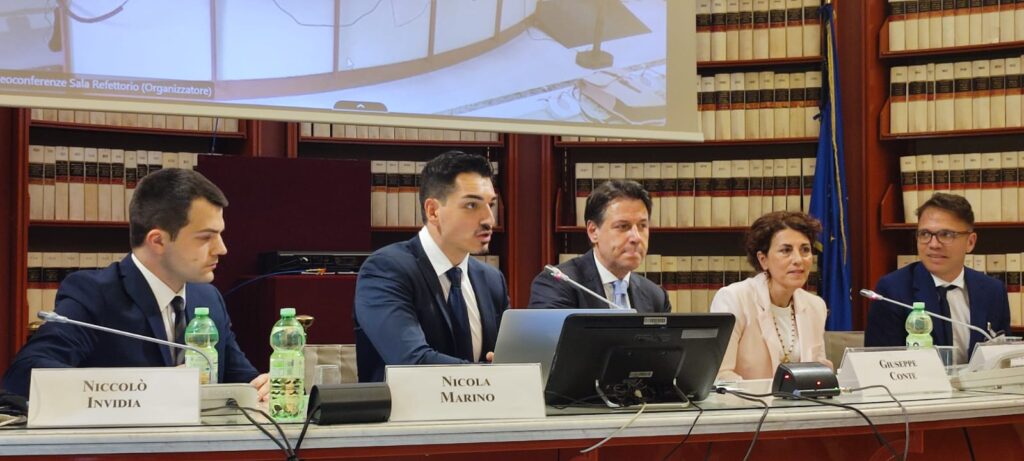by Nicola Marino – Scientific Advisor WBP
Life expectancy has increased by 26 years since the mid-twentieth century, growing from 47 to 73 in just seven decades. However, the quality of life has not improved with the increase in life expectancy. Individual, environmental and health factors weigh on the person’s psycho-physical well-being, thus accelerating biological ageing, which has repercussions with the accumulation of chronic diseases and frailty. It is estimated that with a life expectancy of 73 years, the period lived in the presence of polymorbidity and fragility is nine years. About one fifth of an individual’s life will be lived with morbidity.
In this context, the international meeting on “Human Longevity + Exponential Technologies” was held on 17 June 2022 at the Italian Chamber of Deputies in Rome. Deputy Niccolò Invidia chaired the meeting with the Women’s Brain Project (WBP) presence.
Dr Antonella Chadha Santuccione, CEO of the Women’s Brain Project and CMO at Altoida; Alex Zhavoronkov, CEO of InSilico Medicine; Prof. Valter Longo, the Director of the Longevity Institute of the University of Southern California; Sergey Young, Founder of Longevity Vision Fund and Tiziana Mele, the CEO delegate of Lundbeck Italy were joined by the former Italian Prime Minister Giuseppe Conte.
As described by Dr Antonella Santuccione Chadha, what is worrying is the percentage change in the prevalence of comorbidities in the neurological domain, in particular dementia. According to the neuroscientist: “In 2019, about 57.4 million people were living with dementia globally. It is estimated that this number will increase to 83 million individuals in 2030, 116 million in 2040 and 152 million people with dementia in 2050. These data show how it will be essential to act on the determinants of the emergence of these diseases, using the most modern technologies of monitoring, early diagnosis and treatment, such as digital health devices, digital therapeutics and artificial intelligence algorithms.”
The interest of the research group of the Women’s Brain Project not only focuses on the neurological domain, but on other fundamental aspects related to ageing and peculiar to women, such as reproductive and hormonal function. Santuccione explains, “Having a first child at an increasingly advanced age is a global trend. The average age of first childbirth in 1970 was 21, rising to 26.9 in 2018. Compared to 1970, the percentage of women who had their first child after age 35 has increased almost ten times.
In addition to the decline in reproductive functions, hormonal alterations have repercussions with systemic consequences, such as increased cardiovascular risk, skeletal fragility and genitourinary symptoms.”
Therefore, geroscience studies are needed to promote the reproductive longevity of women and extend the ovarian reserve.
The technological and biotechnological trends of the near future were also analyzed during the meeting. As defined by Sergey Young, investor and founder of the Longevity Vision Fund: “From a technological point of view, we can guarantee better psycho-physical well-being thanks to already available tools such as wearable devices, software and medical apps, which at the same time are able to collect data in real time related to the state of health of the individual, process it and treat the patient remotely and preventively. However, medium-term solutions, including gene therapies and the use of artificial intelligence algorithms, improve diagnostic efficacy and make the development of new drugs faster and more efficient. Finally, in a long-term vision, nanorobots, human-brain interface systems and avatars will simulate pathological and treatment processes in silico.”
The meeting was the first of a series of debates with Italian and European institutions that will be held in the coming months to define, together with the leading experts in the sector and in a multidisciplinary way, new national and international policies capable of filling the gap between health and life expectancy.




